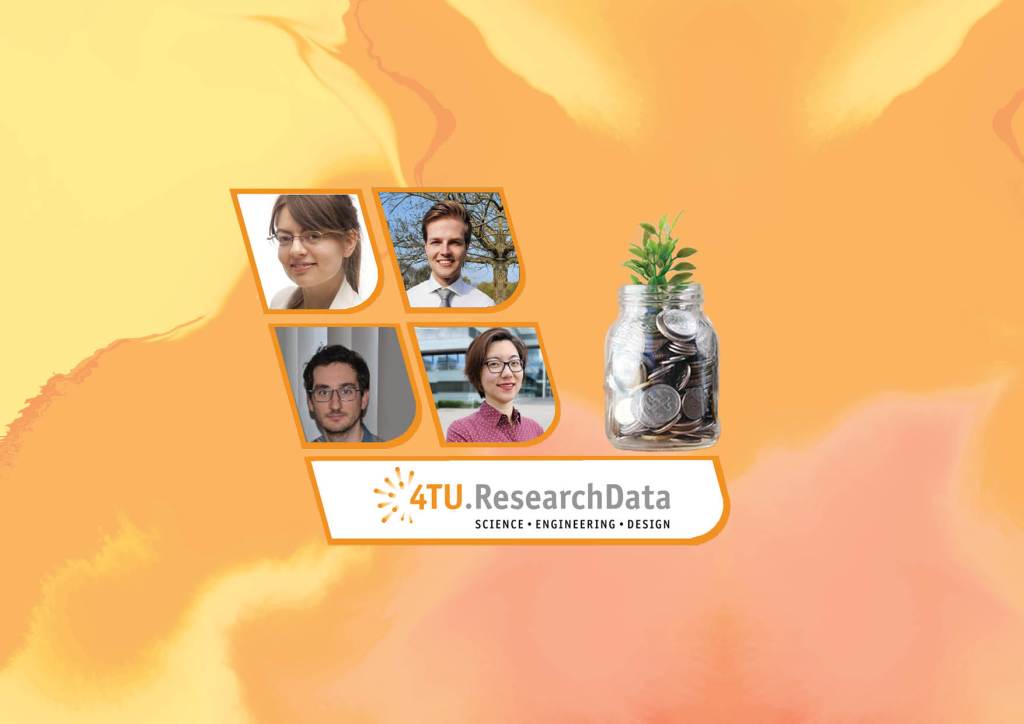
Ying Wang
Assistant Professor in Biomedical Signals and Systems at University of Twente | Ying Wang
Ying is engaged in remote monitoring of individuals’ vital signs and movement in daily life for personalized disease prevention and management.
Early detection of non-communicable disease (e.g., cardiovascular diseases and diabetes) can help people get timely interventions and increase their quality of life. This study described the first step to build up a daily monitoring system of individuals’ health condition based on the interaction between body movement and physiological responses.
With the help of the FAIR Data Fund, Ying aims to build up a dataset from healthy subjects including demography, body-segment movement collected by inertial measurement units, physiological signals collected by wearable electrocardiogram signals, videos, and the annotations of physical activity during daily life made by human raters. Publishing this dataset will contribute to the development progress of e-health monitoring systems globally given the time and effort in dataset building. This dataset at 4TU.ResearchData will be treated as an essential guideline for the management and sharing of our future dataset collected from patients.
Guillaume Durandau
Postdoc Researcher in Biomechanical Engineering at the University of Twente | @GDurandau
Guillaume is an expert in biomechanics, neuromechanics and wearable robotics.
Guillaume aims to develop and release an open-source framework for the real-time collections of human data and automatically generate datasets that are ready to be shared, i.e respecting FAIR principal by embedding Metadata and a common structure in the generated datasets.
Currently, data collection is done using different devices that create files in close and proprietary formats, which obstruct dataset sharing in a FAIR way. By having dataset in non proprietary and open format, sharing and using all generated data by the software will allow the research community to reprocess and validate scientific results more easily.
Doina Bucur
Assistant Professor in Computer Science at the University of Twente | @doina_net
Doina has a background in network data science. This models complex networked systems to gain insights into how they are formed, predict how they will evolve, and learn how to steer them.
The dataset Doina and colleagues have digitised provides researchers interested in cultural astronomy with scholarly, documented data about the astronomical traditions in various cultures around the world, from native tribes to literate astronomies. The dataset is in JSON format, with uniform identifiers for properties of each culture and sky object (particularly star constellations represented as line figures, which are a type of network).
The FAIR Data Fund will allow the use of this data in multiple scholarly disciplines, from astronomy to data science to cognitive science. Recent publications used parts of this data, formatted differently. Their results cannot be reproduced by a new researcher without help. Also, existing analyses can only be integrated (or expanded with data additions) with significant effort. The new dataset achieves data integration (whenever new sky objects are added to the dataset), the reproducibility of results, and particularly the integration of knowledge across scientific disciplines. This dataset is unified and documented, meets scholarly standards in all disciplines, so enables collaboration and common analyses.
Sander Dingemans
Research Engineer in Dynamics and Control at Eindhoven University of Technology
Sander has a background in Mechanical Engineering with a specialization in Dynamics and Control, focusing on impact-aware robotic manipulation and perception.
Using the FAIR Data Fund, Sander will convert recently acquired data of robot-environment and robot-object intentional collisions into a FAIR data format including suitable metadata.
By publishing this dataset in the existing 4TU.ResearchData collection “Impact-Aware Robotics Archives Collection”, Sander and colleagues expect that external parties will be stimulated in the coming years to also contribute to the database, which will stimulate research and thus advancement in the field of impact-aware robotic manipulation. Due to the FAIR data format, the underlying data is findable, accessible, interoperable and reusable by other researchers.
More information
The FAIR Data Fund offers researchers a budget (up to €3.500) to cover the costs of making their data Findable, Accessible, Interoperable and Reusable (FAIR data principles). Researchers from TU Delft, TU/Eindhoven and the University of Twente are eligible to apply for the fund.
Applications for the FAIR Data Fund Spring Call are now closed. Subscribe to our newsletter to stay updated about the Autumn Call.

